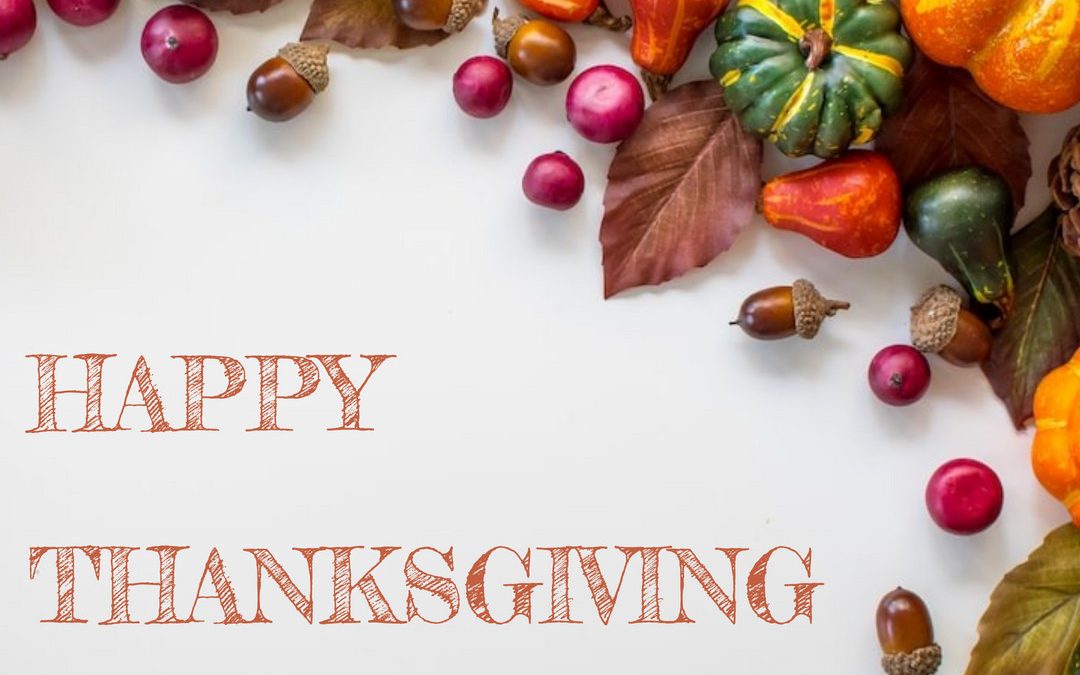
by Marisa Ferrera | Mar 8, 2024 | Relationships, Special Days
As we celebrate International Women’s Day, it’s a perfect time not only to honor the remarkable achievements of women but also to reflect on the relationships we have with the women in our lives. Relationships, whether familial, romantic, or platonic, play a crucial role in our well-being. They shape our experiences, emotions, and even our sense of self. However, they can also bring challenges, conflicts, and tensions. This International Women’s Day, let’s delve into the significance of maintaining healthy relationships for our own well-being and explore ways to heal those that may be strained.
Healthy relationships are vital for our mental, emotional, and physical health. They provide us with support, encouragement, and a sense of belonging. Research has consistently shown that strong social connections can improve overall well-being, reduce stress levels, and even enhance longevity. However, maintaining healthy relationships requires effort, communication, and mutual respect.
On this day, take a moment to reflect on the women in your life with whom you may be in conflict. It could be a family member, a friend, a colleague, or even yourself. Consider the root causes of these conflicts and the impact they have on your well-being. Acknowledge your feelings, whether they’re anger, resentment, or hurt, and recognize the importance of addressing them for your own sake.
Healing strained relationships takes courage and vulnerability, but it’s a crucial step towards personal growth and well-being. Here are some steps you can take to begin the process of healing:
1. Self-Reflection: Take time to reflect on your own thoughts, feelings, and behaviors in the relationship. Consider how your actions may have contributed to the conflict and what changes you can make moving forward.
2. Open Communication: Initiate a conversation with the other person in a calm and respectful manner. Express your feelings, listen to their perspective, and strive to understand each other’s viewpoints without judgment.
3. Empathy and Compassion: Practice empathy and compassion towards the other person, recognizing that they may also be experiencing their own struggles and challenges. Try to see things from their perspective and validate their feelings.
4. Setting Boundaries: Establish healthy boundaries to protect yourself from further harm or negativity in the relationship. Clearly communicate your needs and expectations, and be willing to honour your boundaries if they’re crossed.
5. Seeking Support: Don’t hesitate to seek support from trusted friends, family members, a therapist, or a coach. Talking to someone impartial can provide valuable insights and guidance on navigating difficult relationships.
Remember that healing takes time and patience, and it’s okay to seek professional help if needed. Ultimately, prioritizing your own well-being and nurturing healthy relationships are essential aspects of personal growth and fulfillment.
This International Women’s Day, let’s commit to fostering love, understanding, and reconciliation in our relationships. By embracing empathy, communication, and forgiveness, we can create stronger bonds and cultivate a more compassionate and supportive community for all women.
If you’d like some support in dealing with a challenging relationship, I invite you to schedule a complimentary call where we can explore together whether or not I’m the best person to help you.

by Marisa Ferrera | Jan 1, 2024 | Relationships, Special Days
The dawning of a new year often brings with it a collective energy for change and growth. It’s a time when resolutions are made and aspirations for a brighter, more fulfilling future take root. In this spirit, I invite you to join me in a resolution that extends beyond personal goals—a resolution to cultivate healthier and more harmonious adult family relationships.
The Ripple Effect of Connection
Beyond the realm of personal growth, let’s take a moment to recognize the profound impact our connections have on the world around us. Our relationships, particularly within the family unit, hold the power to shape the energy of our homes and, in turn, contribute to a world filled with love, peace, and positive vibrations.
The Heart of the Resolution: Healthy Boundaries
At the core of this resolution lies a commitment to establishing and respecting healthy boundaries within our families. This practice is not merely an expression of self-love but also a potent means to elevate the frequency and vibration of the earth. By creating clear and respectful boundaries, we open up a space for authentic connections, understanding, and personal growth.
In the intricate dance of family dynamics, boundaries act as the guideposts that help navigate the ebb and flow of relationships. They serve as the foundation for creating an environment where love and harmony can flourish.
Conscious Prioritization: Communication, Empathy, and Forgiveness
As we step into the new year, let’s consciously prioritize open communication, empathy, and forgiveness within our families. These seemingly simple yet incredibly powerful acts not only strengthen the bonds that tie us together but also send waves of positivity into the world. Imagine the collective impact if each of us dedicates ourselves to fostering love and compassion within our family units!
The Extended Reach of Positive Energy
It’s crucial to remember that the energy we radiate within the walls of our homes and within our family relationships extends far beyond. It contributes to the collective energy of the world and plays a role in shaping a more peaceful global environment. As we embark on this new year, let’s be mindful of our thoughts, words, and actions, understanding their potential to elevate the energy around us.
May the coming year be filled with moments of joy, understanding, and growth within our families. Together, let’s create a ripple effect of love that extends far beyond our homes, touching the hearts of others and inspiring positive change around the globe.
Wishing you a New Year filled with love, laughter, and transformative connections!

by Marisa Ferrera | Dec 23, 2023 | Special Days
As the holiday season unfolds, I’d like to extend my warmest wishes to you and your loved ones. In a world filled with diverse traditions, this is a special time when we can collectively embrace the universal values of Peace, Love, and Joy.
The true beauty of this season lies in its magical ability to bring people together, irrespective of their cultural or religious backgrounds. It’s an occasion to revel in the diversity that makes each of us extraordinary and unique. Whether you find joy in the twinkling lights of Christmas, the menorah’s glow during Hanukkah, the unity celebrated in Kwanzaa, or any other heartfelt tradition, may the spirit of unity and understanding find a home in your heart.
Embracing Diversity: Share Your Holiday Traditions
In the spirit of togetherness, I invite you to reflect on and share the richness of your own holiday traditions. What rituals or customs make this time of year uniquely special for you? Whether it’s a beloved family tradition passed down through generations, a favorite festive activity that brings unparalleled joy, or a personal ritual that adds a touch of magic to your celebrations—I’d love to hear about it. Let the spirit of the season weave a tapestry of collective joy that transcends boundaries.
Creating Warm Memories: Home, Laughter, and Love
As you step into and embrace this holiday season, may your home be filled with the warmth of love, the echoes of laughter, and the cherished company of family and friends. It’s a time to create memories that will linger long after the decorations are packed away. Here’s to a holiday season filled with shared moments, cherished traditions, and the promise of a bright and joyous New Year!

by Marisa Ferrera | Oct 31, 2023 | Special Days
It’s Halloween, the day when many choose to wear costumes and temporarily become someone else. When the day is over, the costumes and masks are put away.
But, what about the other masks we wear on a daily basis?
These masks aren’t made of plastic or cloth, but they’re just as real and sometimes trickier to remove. They’re the different personas we slip into—the confident one, the strong one, the perfect one, or even the invulnerable one. These roles might seem necessary at times, but here’s the problem: wearing them too often can really mess with our relationships and authenticity.
1. Being Real vs. Playing Pretend: Keeping these masks on can make us forget who we truly are underneath all the acting. Our true selves take a back seat, and we end up in a never-ending performance, often too scared to show vulnerability or be ourselves.
2. Blocking Connection: Masks can act as walls between us and others. Instead of connecting on a deeper level, we’re often just dealing with these surface-level personas. This can lead to shallow, unfulfilling relationships, leaving us feeling isolated and unfulfilled.
3. Communication Challenges: When we’re wearing a mask, we’re often filtering what we say and how we express ourselves. This can make communication tricky, and we might struggle to deal with issues or share our genuine feelings, which is essential for healthy relationships.
4. Emotional Drain: Always being “on” and putting on a show can be emotionally exhausting. It piles on stress and anxiety, and it can make us feel disconnected from our own feelings.
5. Stalling Personal Growth: Masks sometimes act as shields to protect us from potential hurt, but they also keep us from growing and discovering who we truly are. To grow, we need to embrace our vulnerability and face our real selves.
How to Break Free From the Masks You Wear and Nurture Authentic Connections
1. Take a Moment to Reflect: Spend some time thinking about the masks you wear and why you wear them. Recognize the situations and people that trigger these behaviors.
2. Embrace Vulnerability: Open up and be honest with the people you trust. Authentic connections thrive on vulnerability.
3. Empathy is Key: Remember that others are wearing masks too. Be empathetic and create a safe space for them to be themselves around you.
4. Consider Seeking Help: If you find it really tough to drop your masks, think about seeking support from a therapist, counselor, or empowerment coach. They can help you navigate the path to self-discovery and authenticity.
Remember, authenticity is a gift you give to yourself and others. By shedding your masks, you can create deeper, more meaningful relationships and find a sense of freedom and connection that goes beyond the roles you play in your daily life.

by Marisa Ferrera | Oct 6, 2023 | Special Days
Thanksgiving Day, a beloved holiday celebrated in Canada, the United States and a few other countries around the world, is a time when families and friends gather to share a meal and express gratitude for the blessings in their lives. While all countries don’t celebrate Thanksgiving on the same day, the essence of the holiday remains the same: giving thanks. But why limit the practice of gratitude to just one day a year?
Here’s a little background about the significance of Canadian and American Thanksgiving Days along with some benefits of cultivating the power of gratitude and ways you can make gratitude a part of your daily life.
Canadian Thanksgiving: A Time for Harvest
In Canada, Thanksgiving falls on the second Monday of October, and it’s a celebration deeply rooted in the country’s agricultural history. Historically, it marked the end of the harvest season when families would come together to give thanks for the bountiful crops that would sustain them through the long, harsh winter.
American Thanksgiving: Pilgrims, Peace, and Unity
Across the border in the United States, Thanksgiving is observed on the fourth Thursday of November. It traces its origins to the Pilgrims, who, in 1621, shared a feast with Native Americans to celebrate a successful harvest. This event is seen as a symbol of peace, unity, and cooperation between two distinct cultures.
The Power of Gratitude
All Thanksgiving Days share a common theme: gratitude. Expressing thanks for the blessings in our lives is a powerful practice that can bring numerous benefits including:
1. Improved Mental Health: Research has shown that practicing gratitude can lead to increased feelings of happiness and reduced symptoms of depression and anxiety. When we focus on what we have rather than what we lack, we foster a positive mindset.
2. Stronger Relationships: Gratitude strengthens relationships by making us more appreciative of our loved ones. Expressing gratitude to others can deepen bonds and create a sense of mutual respect and affection.
3. Resilience: Grateful individuals tend to be more resilient in the face of challenges. When we acknowledge our blessings, we gain perspective and can better cope with adversity.
4. Health Benefits: Studies suggest that gratitude may have physical health benefits, such as improved sleep, reduced blood pressure, and a stronger immune system. A grateful heart can lead to a healthier life.
Cultivating Gratitude Year-Round
The beauty of gratitude is that it can be practiced every day, not just on Thanksgiving. Here are some ways to make gratitude a part of your daily life:
1. Keep a Gratitude Journal: Dedicate a few minutes each day to jot down three things you’re grateful for. This simple practice can help you focus on the positives in your life.
2. Express Thanks to Others: Don’t hesitate to express your appreciation to the people who make a difference in your life. A heartfelt “thank you” can go a long way.
3. Volunteer and Give Back: Giving your time and resources to help others can foster gratitude and a sense of purpose.
4. Mindfulness and Meditation: Mindfulness practices can help you stay present and appreciative of the moment, allowing you to recognize the beauty in everyday life.
5. Count Your Blessings: Regularly remind yourself of the things you are grateful for. This can be as simple as a mental exercise during your daily commute.
Thanksgiving Days remind us of the power of gratitude. While these holidays provide an excellent opportunity to come together with loved ones and express thanks, let’s not limit our practice of gratitude to just one day a year. By cultivating gratitude year-round, we can lead happier, healthier, and more fulfilling lives. So, as you enjoy your Thanksgiving feast this year, remember that gratitude is a gift you can unwrap every day.

by Marisa Ferrera | Sep 24, 2023 | Relationships, Uncategorized
Image by Freepik
Introduction
International Daughters’ Day is a special occasion that provides an opportunity to reflect on the importance of fostering healthy relationships between mothers and daughters, not just during childhood but throughout their lives. In this blog post, let’s learn about the origins of International Daughters’ Day and gain a better understanding about the significance of nurturing a strong mother-daughter connection even as daughters grow into adulthood.
The Origins of International Daughters’ Day
International Daughters’ Day is a relatively new addition to the calendar of international observances. Its focus is to celebrate family bonds and the individual contributions of daughters within these relationships.
International Daughters Day is typically celebrated on the fourth Sunday in September, a time when families come together to honor and appreciate the role daughters play in their lives. This day encourages parents to express their love, gratitude, and appreciation for their daughters.
Nurturing Healthy Mother-Daughter Relationships
1. Open and Honest Communication
One of the fundamental pillars of a healthy mother-daughter relationship is open and honest communication. This begins in childhood and becomes even more crucial as daughters grow into adults. Encouraging a safe and non-judgmental space for dialogue allows daughters to express their thoughts, feelings, and concerns freely.
2. Mutual Respect
Respect is the cornerstone of any strong relationship. Mothers and daughters need to treat each other with respect, acknowledging each other’s individuality, opinions, and choices. Respecting boundaries is equally important, allowing both parties to grow and evolve independently.
3. Empathy and Understanding
Empathy is key to fostering emotional closeness. It’s important for Mothers to strive to understand their daughters’ perspectives, challenges, and experiences. Conversely, daughters need to also make an effort to appreciate their mothers’ viewpoints, recognizing the wisdom that comes with age and experience.
4. Quality Time Together
Spending quality time together is a wonderful way to strengthen the mother-daughter bond. Whether it’s sharing a hobby, going on a weekend getaway, or simply having a heartfelt conversation, these moments create lasting memories and reinforce the connection.
5. Support and Encouragement
As daughters enter adulthood, they face various challenges and life transitions. Mothers can be a source of support and encouragement, offering guidance without being overbearing. Providing a safety net and a listening ear during difficult times can be invaluable.
6. Embracing Change
As daughters become adults, their roles and responsibilities evolve. Mothers must adapt to these changes and allow their daughters the space to grow, make their own choices, and learn from their experiences. Embracing these transformations fosters a relationship built on trust and acceptance.
Conclusion
International Daughters’ Day serves as a reminder that the mother-daughter relationship is a precious and enduring bond that can bring immense joy and fulfillment throughout a lifetime. By nurturing open communication, mutual respect, empathy, quality time, support, and an understanding of evolving roles, mothers and daughters can cultivate a connection that remains strong and resilient, enriching both of their lives.
Take time to celebrate the daughter or daughters in your life, not just on this special day but every day, as you continue to cherish and nurture your relationship with one another.







